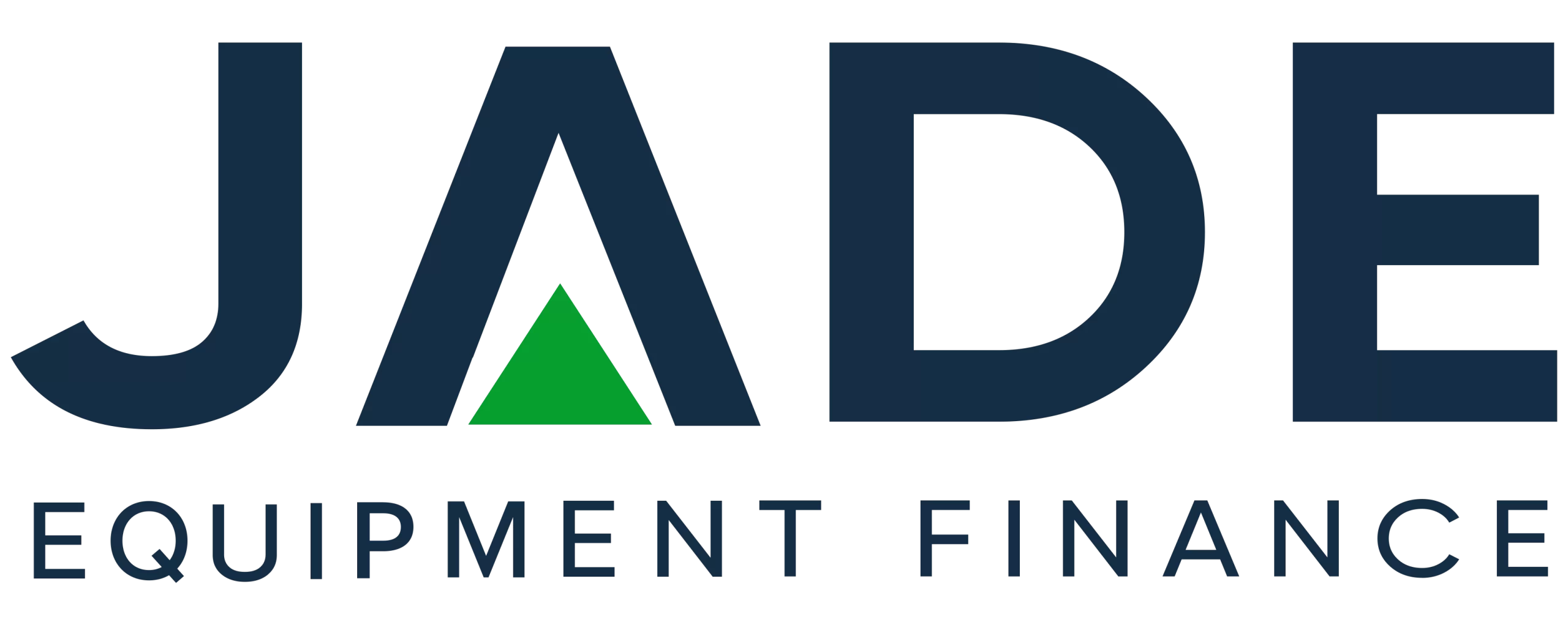Since introduced in April 2020 and further expanded and extended through 2020 and in the 21/22 Federal Budget, accelerated asset depreciation measures may have been perceived as the only game in town in terms of equipment acquisition. Jade Equipment Finance provides an update on these and other tax deductible equipment finance options.
Instant Asset Write-Off (IAWO) has been pushed and promoted heavily over the past 12+ months, as an incentive to purchase new plant, machinery and equipment in many industries. And for a lot of very solid reasons. Both IAWO and temporary full expensing present highly attractive tax deductibility elements for eligible businesses on eligible asset acquisitions.
But, as lenders that deal with a wide range of businesses across all industries, we are fully aware that these measures are not for every business and every equipment purchase. There are many reasons why business can’t or don’t choose to utilise these taxation schemes. Primarily, accelerated asset depreciation requires the business to own the equipment as in have it posted to their balance sheet. In order to achieve this, the equipment needs to be either purchased outright or financed through a finance facility that enables this. That is seen as Chattel Mortgage.
When an asset is acquired with Chattel Mortgage, the borrower takes ownership immediately and as such the equipment is listed in their accounts as an asset/liability. This allows the business to depreciate the asset in line with current ATO guidelines. At the moment, those guidelines include temporary full expensing.
But not all businesses necessarily want such a large value liability on their balance sheet and Chattel Mortgage only suits businesses that utilise the cash accounting method. Two key reasons why these measures just don’t suit everyone.
For those, we offer a number of other finance options which also include attractive tax deduction elements.
Tax Deductible Equipment Finance
All business finance facilities do offer tax deductibility in some form. But how that tax break is realised does vary depending on the loan type. As broad-based lenders, we offer the full portfolio of equipment loan products. As alternatives to Chattel Mortgage, businesses can consider Leasing and Rent to Own.
Leasing and Rent to Own are not suited to asset depreciation but they do include tax deductions. With both these forms of finance, the ownership of the asset (plant, machinery, equipment) is retained by the lender. The borrower makes monthly leasing/rental payments while working towards ownership. As the borrower does not own the asset, they are not entitled to depreciate it. They are often referred to as ‘off balance sheet’ loan forms as the asset is not entered on the borrower’s balance sheet.
The major tax deduction associated with Leasing and Rent to Own is realised with the monthly payments. These are seen as an operating cost and are fully tax deductible (subject to any individual business aspects). So the full repayment amount can be deducted. Over the up to 7 year loan term, that can amount to a significant tax benefit to the business. Where a residual or buyback is included in the finance contract, that is also tax deductible when paid out.
GST is also treated differently depending on the type of finance. With Chattel Mortgage the business can claim the entire amount of GST associated with the purchase on the first BAS return following purchase. This can be a major win.
With Leasing and Rent to Own the GST is applied to the monthly payments. As such, it can be claimed by businesses registered for GST, on the relevant BAS statements. GST is not charged on the interest portion of the repayments. So it is still deductible.
For many businesses, especially those that use the accruals method of accounting, these off balance sheet finance facilities offer more attractive benefits than Chattel Mortgage while still providing tax benefits to the business.
It should be stressed that regardless of ownership of the equipment, all these forms of finance to entitle the borrower to full use of the equipment from the time of purchase. The borrower is responsible for the ongoing expenses associated with the asset which may include rego, insurance, maintenance, repairs and servicing.
Low Docs and No Docs Options
Businesses seeking low docs or no docs equipment loans are eligible to apply for Leasing and Rent to Own. When starting up a new business, which many of these applicants are doing, it may be a more workable option than having the value of a large piece of machinery or equipment posted to the business accounts through a Chattel Mortgage.
While our Jade consultants are specialists in sourcing and structuring finance, we recommend that business owners refer to the accountant or their financial advisor on decisions around the most suitable loan type.
Equipment and Industry Suitability
The industry you operate in and the type of equipment being acquired does not in itself determine which loan type is the most suitable for the purchase. Aspects of the business operation including financial objectives and the accounting method being used are major determinants. In some cases lenders may have a preference for which loan type they offer to some businesses.
We operate across all industries and provide equipment finance for a wide selection of plant, machinery and equipment. Specifics around your particular application will be discussed and addressed on an individual basis when providing your briefing to our Jade consultants.
Contact Jade Equipment Finance on 1300 000 003 to discuss your equipment finance options.
DISCLAIMER: IF MISINTERPRETATIONS, MISREPRESENTATION OR ERRORS EXIST IN THIS ARTICLE, NO LIABILITY IS ACCEPTED. THE INFORMATION IS PROVIDED ONLY FOR GENERAL PURPOSES AND NOT IN ANY MANNER INTENDED AS THE ONLY SOURCE FOR MAKING FINANCIAL DECISIONS. THOSE THAT CONSIDER THEY REQUIRE ADDITIONAL GUIDANCE OR ADVICE SHOULD REFER TO AN INDEPENDENT FINANCIAL ADVISOR.


